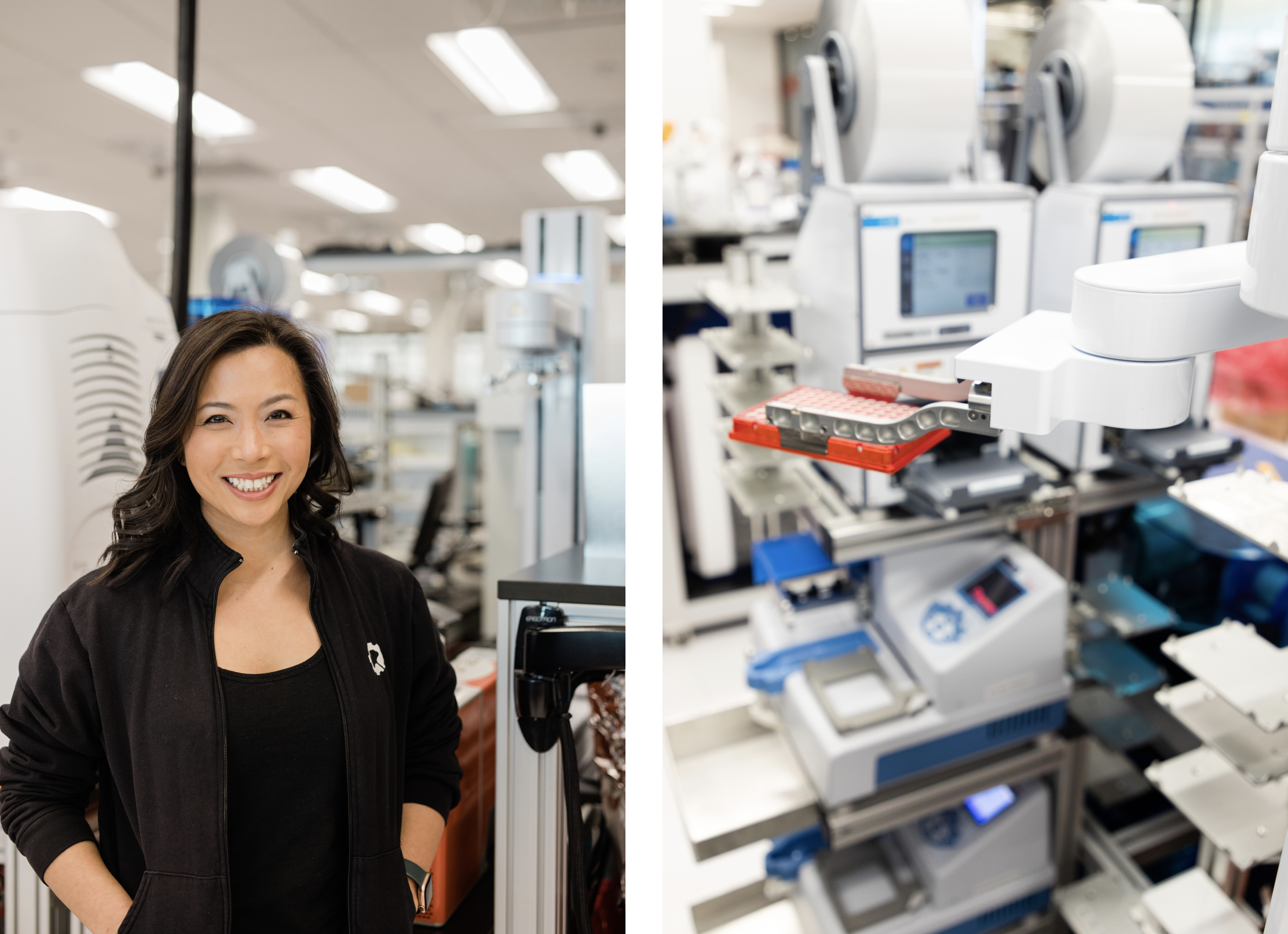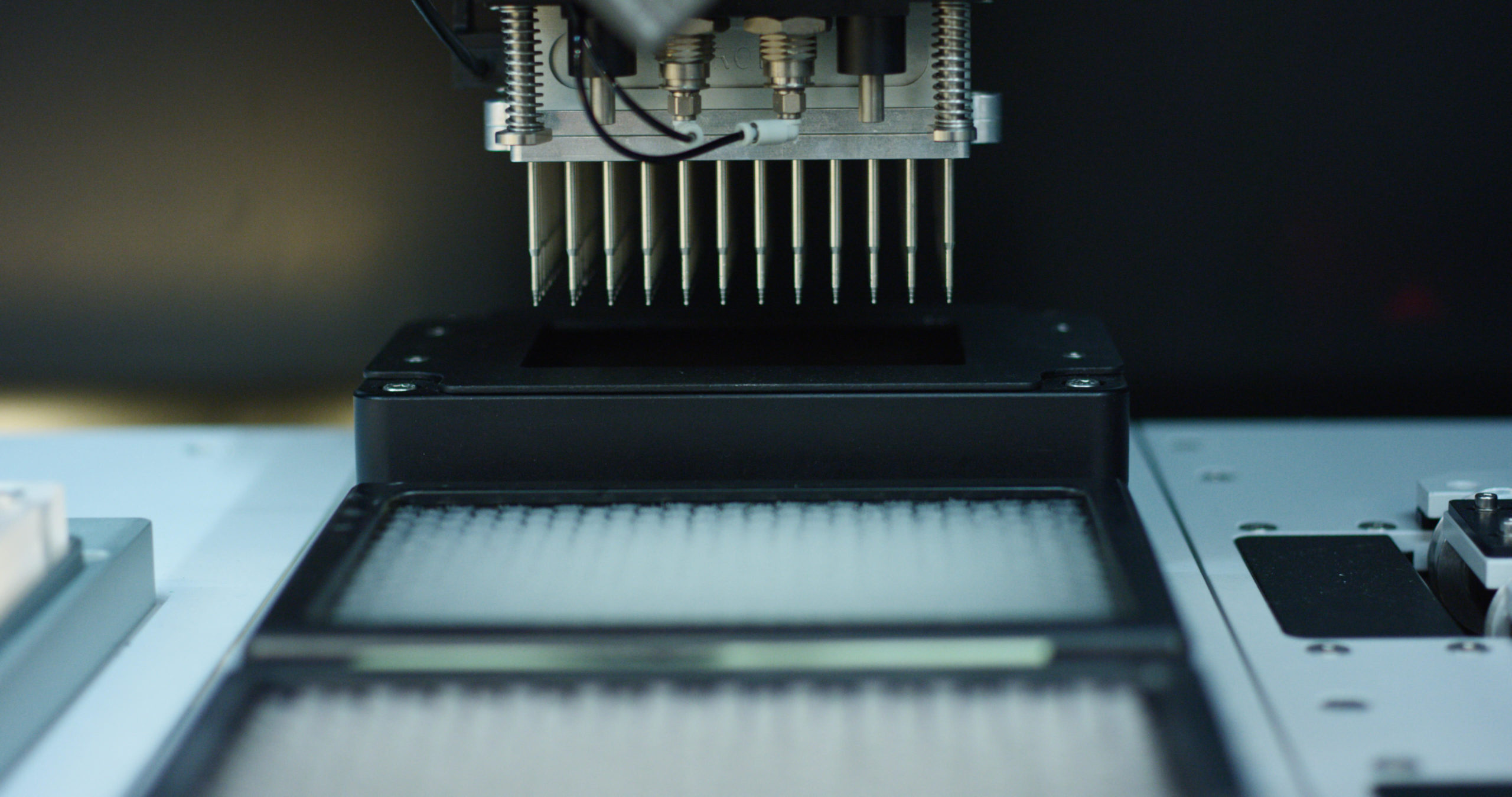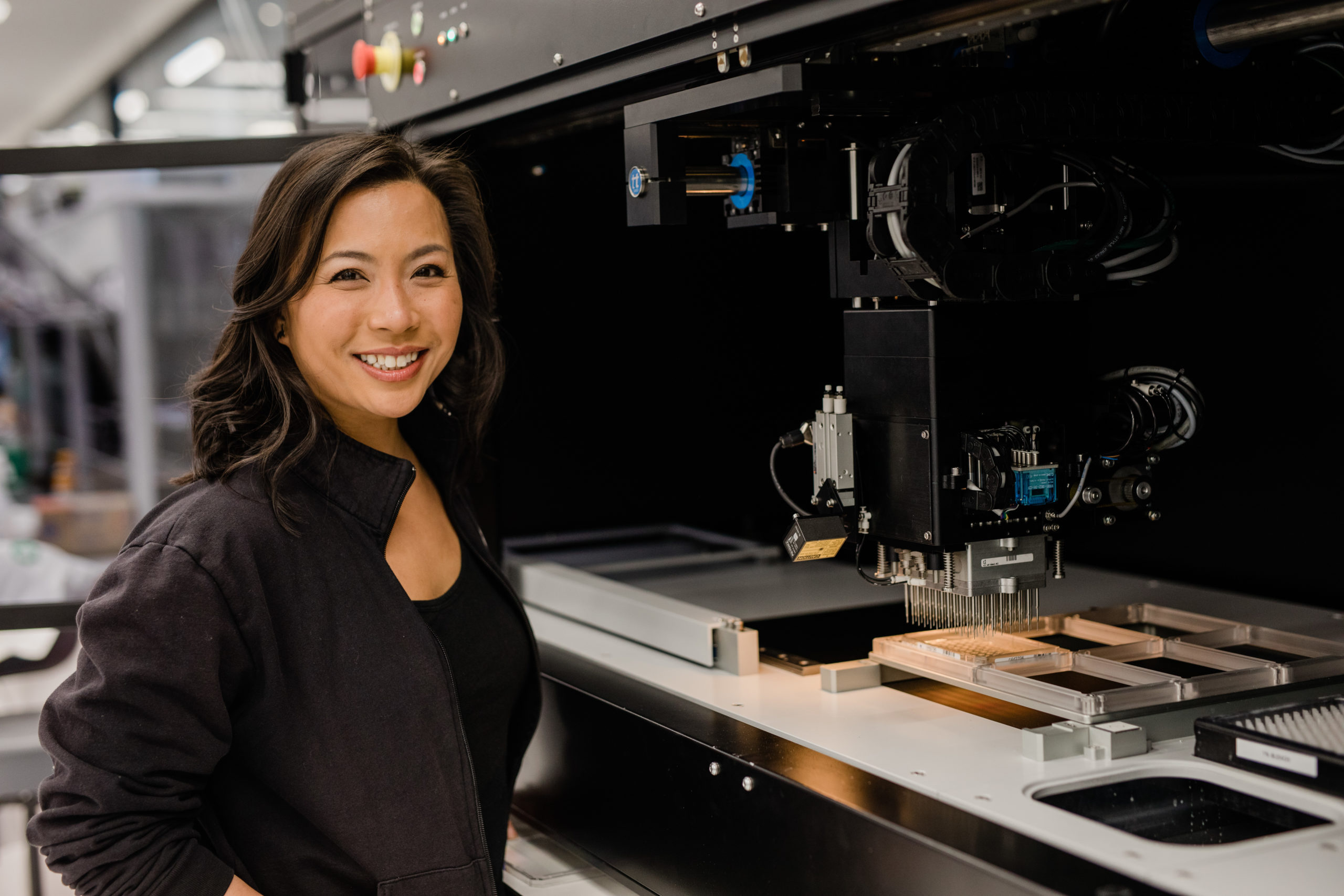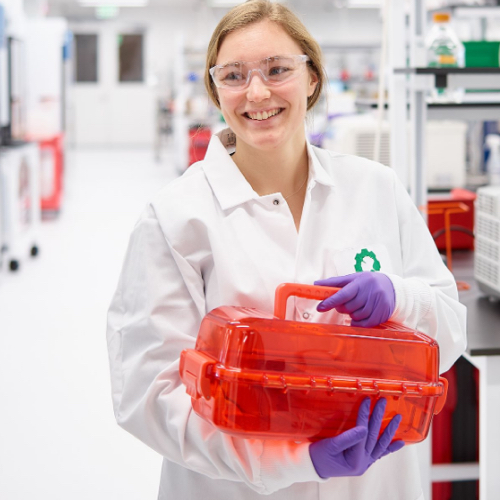We’re excited for our next interview in our day-in-the-life series! Here we hear from Kristen Tran, one of Ginkgo’s first ever Automation Engineers, on her path to Ginkgo and what she’s looking forward to in 2020.
How did you find this industry and this role? What was your path to Ginkgo?
Both my undergraduate and graduate degrees are in biomedical engineering. I did my undergrad at the University of Texas, then came to Boston for graduate school at Boston University. After graduating from BU, I was at a networking event for women in science and engineering, and connected with a manager at Merck Pharmaceuticals, who asked me a question I’d never considered—was I interested in automation?
As it turns out, I was very interested, and my career as an automation engineer began! I already had a solid base of engineering knowledge from my education, but I built my expertise in lab automation through hands-on work. I had been at Merck for about 6 years when a friend of mine, who was working at Ginkgo, got in touch about the company’s automation team—which at that time was just one person (Jeff Lou, still our head of automation today!)—and I realized I had found my next step.
I was really excited about the prospect of building something new, and between that, and all the amazing things the company was working on, I was sold, and joined Ginkgo back in 2015 as the first member of the automation team. These days, we are a team of 13 and growing!

What is the automation team’s role and impact at Ginkgo?
Our team is in charge of automating manual processes within Ginkgo’s foundries. This means lifting all kinds of manual work off of our foundry engineers in the lab—not only automating processes they would normally need to do by hand, but also helping them to scale processes beyond human capacity, processing thousands of samples each day at nanoliter scale.
This is important work because it gives our foundry engineers more time to do what’s really valuable for them—developing new tools and processes to engineer biology. For instance, we were able to program our acoustic liquid handler to perform 2D full factorial experiments to optimize how we sequence our engineered microbes.
We do this by designing and implementing custom system integrations combining off the shelf and custom hardware and software elements—enabling our foundry engineers to program and execute personalized protocols on our automated systems.
How does the automation team at Ginkgo operate, and what is your role within the team?
On the automation team at Ginkgo, everyone does a little bit of everything. We’re very cross-disciplinary, working across hardware, software and biological process implementation. That said, we all have different strengths—largely due to the fact that we all come from different engineering backgrounds. On the team now, we have mechanical engineers, an aerospace engineer, chemical engineers, and biomedical engineers. There are some team members that came to Ginkgo right out of school, other industries, or have been working in the lab automation space for years. It’s really this mix of expertise and career backgrounds that allows the team to operate so effectively.
As the most senior member on the team, I tend to play a more strategic role in guiding and overseeing projects that come in. I also serve as a liaison between our team and all the other teams at Ginkgo—a part of my job I really enjoy, because it gives me a holistic view of everything the company is working on and where my team can help. Along with this higher level work I still very much get my hands dirty on ongoing projects, contributing directly on engineering implementation and helping to configure and design new systems, while also supporting our current systems.
While it’s not necessarily part of my job description, I’m also heavily involved in our hiring process, because I believe that at the end of the day, our strongest asset is our team. Making sure that we have the strongest, most diverse team of engineers that we can so that we continue to scale that team and deliver the best results for Ginkgo is incredibly important.
What does your day-to-day look like?
A typical day varies! It can involve anything from troubleshooting specific instruments or processes, working hands-on in the lab, installing or optimizing software or hardware—to longer-term work, working on the design and architecture of future projects. There are so many different implementation and design aspects to this job.
There’s an operations aspect as well, making sure that people understand what our platforms are capable of, training new users and helping with any issues they might have. We need to understand on an operations level if there is anything that we need to improve, and help our teams to make the most of the platforms we design and implement.

What is your favorite part of your job, or what makes you the most excited?
So for me, personally, one of my favorite things is that this job creates a lot of opportunities for variety and cross-disciplinary challenges. Since a day is so variable, there are always new problems to solve.
Another thing I love about this particular role and this team is that, because we’re a core infrastructure team at Ginkgo, I get to work with basically everyone at the company, from the foundry teams to business development and project leads. Not only does this give our team the opportunity to discover and drive efficiencies across the business, we also get a front row seat to all the latest developments across teams—an early look at the latest and greatest at Ginkgo.
The automation team is able to, within the course of our regular work, develop a truly holistic view of the company. This gives us a unique opportunity to understand how all the pieces of the puzzle that is Ginkgo fit together.
What is Ginkgo working on that you’re most excited about?
I honestly can’t name one specific project! What really excites me is that Ginkgo is working on a more diverse set of projects and problems than almost anyone else out there, whether from a customer perspective or a platform perspective. And we’re constantly working to expand the scope and complexity of the problems and challenges we tackle.
One goal of our team specifically is to help build the most flexible platform we can here at Ginkgo, that can both scale AND adapt —and that’s incredibly exciting. You don’t often see both of those factors combined and for us, it’s a key focus, and one that is critical to Ginkgo’s success.

What is one of your goals for 2020?
I would love to see more diverse applicants applying for our team—both in terms of their career backgrounds (spoiler alert: you don’t have to be a synthetic biologist to work here!) and individual experience. Ginkgo welcomes and celebrates diversity of all kinds and frankly, we’re a stronger company for that.
To apply to our automation team, head over here.
